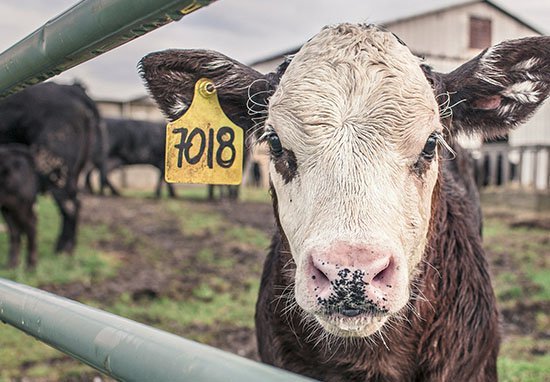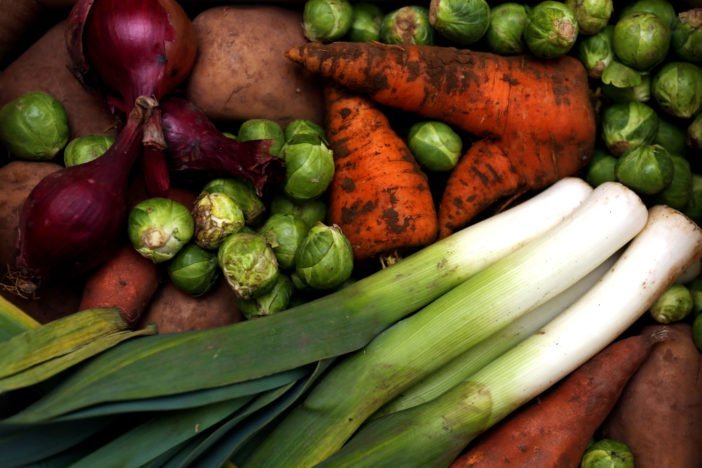While some vegans can be extreme in their ways of being completely free of consuming anything related to animals, it's true that not eating meat will make the Earth a better place. There are many ways you can save the Earth, but if you haven't known, fertilizers used in raising livestock, especially cows and pigs are harmful. Furthermore, natural habitats of animals are harmed in an effort of fulfilling the ever increasing demand for beef and pork.
Let's not get into counting the number of species gone because we decided to go for beef instead of veggies for dinner.
Frankly, there are many other ways we can save the Earth. But if not eating meat can reduce the pollution released to the atmosphere, river and basically the only place in the universe human can live and prevent a mass extinction, I guess I will place that on top of my bucket list for 2019. And well, truth to be told, it's time to cut back some fat, cholesterol and start chomping on more fibers, minerals, and vitamins.
Earlier this year it was reported the world is in the midst of a sixth mass extinction, the likes of which hasn’t been seen for 66 million years, which could cause two thirds of the world’s species to become extinct.
Because of this crisis, as well as industrialised agriculture, livestock and humans now make up 96 per cent of all mammals.
Meanwhile, meat rearing practices can cause significant pollution of streams and rivers, and ultimately the ocean.
To help prevent the global temperature from breaching a 2C increase limit agreed by governments, researchers have said there needs to be a global shift to a ‘flexitarian’ diet.
Healthline describes a flexitarian diet as one which encourages mostly plant-based foods while allowing meat and other animal products in moderation.
If there’s ever a time we need to work collectively to save the planet, it’s now, and cutting back on the amount of meat you buy and eat is the best way to make a change.
Source: Unilad
Let's not get into counting the number of species gone because we decided to go for beef instead of veggies for dinner.
Frankly, there are many other ways we can save the Earth. But if not eating meat can reduce the pollution released to the atmosphere, river and basically the only place in the universe human can live and prevent a mass extinction, I guess I will place that on top of my bucket list for 2019. And well, truth to be told, it's time to cut back some fat, cholesterol and start chomping on more fibers, minerals, and vitamins.

Pixabay
As reported by The Guardian, research released over the last year has emphasised the huge impact eating meat, particularly beef and pork, has on the environment, through fuelling climate change and polluting landscapes and waterways.
Earlier this year it was reported the world is in the midst of a sixth mass extinction, the likes of which hasn’t been seen for 66 million years, which could cause two thirds of the world’s species to become extinct.
Because of this crisis, as well as industrialised agriculture, livestock and humans now make up 96 per cent of all mammals.
Keegan Kuhn, who co-created the documentary Cowspiracy, Said:
Right now we’re living in the largest mass extinction seen on this planet in 65 million years. The leading cause of species extinction around the world is raising animals for food.
We clear massive areas of natural habitat for endangered and threatened species to make room for livestock. We wipe out the ability of those species to recover from imminent extinction.
The effects of deforestation to make room for livestock combined with methane emissions from cows and fertiliser use, results in the creation of as much greenhouse gas emissions as all the world’s cars, trucks and airplanes.
Meanwhile, meat rearing practices can cause significant pollution of streams and rivers, and ultimately the ocean.

PA
According to The Guardian, in October, scientists warned massive reductions in meat consumption – we’re talking a 90 per cent drop in western countries – are necessary to try and prevent dangerous levels of climate change.
To help prevent the global temperature from breaching a 2C increase limit agreed by governments, researchers have said there needs to be a global shift to a ‘flexitarian’ diet.
Healthline describes a flexitarian diet as one which encourages mostly plant-based foods while allowing meat and other animal products in moderation.
As well as simply encouraging people to eat less meat, suggestions such as taxing red meat and feeding seaweed to cows to reduce methane escaping in their burps have been put forward to promote a decline in meat consumption.
If there’s ever a time we need to work collectively to save the planet, it’s now, and cutting back on the amount of meat you buy and eat is the best way to make a change.
Source: Unilad





